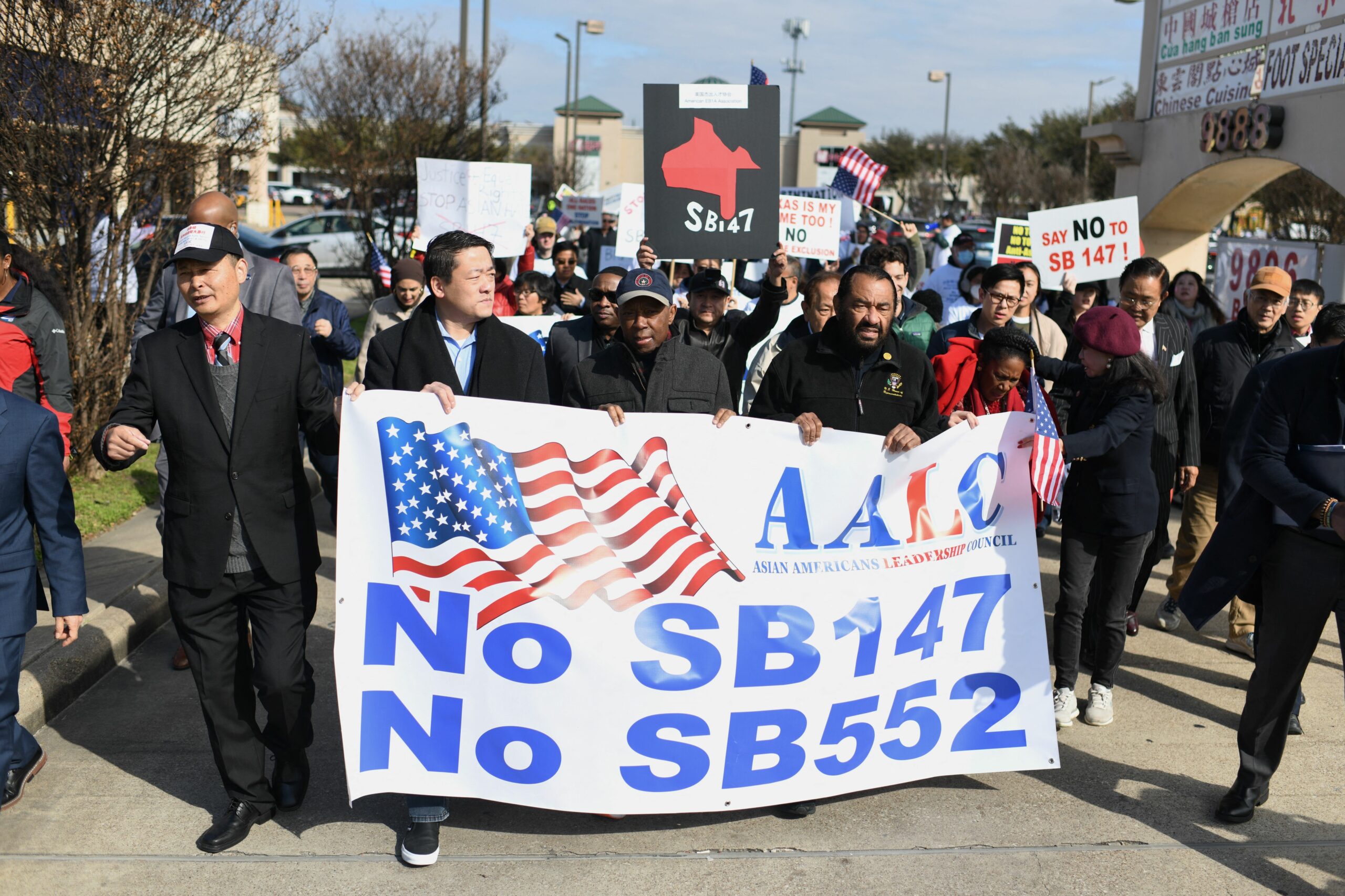In early February, Nick Gee flew from San Francisco to his hometown of Houston to join the local protests against a proposed state law aiming to ban citizens of China from purchasing real estate in Texas.
Gee, a staff member of the civil rights organization Chinese for Affirmative Action, was motivated by the thought of a law that would have denied the American dream to his own family, who immigrated here from China and became grocery store owners 75 years ago.
“Owning a home means putting down roots, starting a family and ensuring long-term economic stability,” Gee said.
The law, SB 147, was put forward by Republican Texas state Sen. Lois Kolkhorst over national security concerns. It would ban citizens and government entities of China, Iran, North Korea and Russia from buying land in Texas, and it’s already garnered support from many Republican legislators.
“The growing ownership of Texas land by some foreign entities is highly disturbing,” Kolkhorst said in a statement. “Passing this law delivers some basic safeguards.”
Since it was announced, SB 147 has sent a shock wave through Chinese American communities nationwide, sparking new debate on the anti-China rhetoric, anti-Chinese racism in politics and the “perpetual foreigner” stereotype. In response, a coalition of Chinese Americans from across the country are banding together to voice their opposition.
Repeating History?
Critics of SB 147 say it’s a copy of anti-Asian land ownership laws, known as Alien Land Laws, dating back to the late 19th and early 20th centuries that targeted Asian immigrants and restricted them from owning lands.
“[This] has happened to Asians again and again,” said Frank Wu, a prominent Chinese American law professor and president of Queens College in New York. “People who are biased say it’s just about foreigners versus citizens—as if it is OK to be hostile to newcomers.”
California passed its Alien Land Law in 1913, and many other states followed suit. These laws remained in place until 1952 after the Supreme Court found they violated the 14th Amendment’s equal protection clause.
Wu, a former dean of the University of California San Francisco’s College of the Law, said the bias behind these types of laws is a form of “perpetual foreigner syndrome” that casts Asians as outsiders rather than members of this country.
Tensions growing between the U.S. and China over the “Chinese spy balloon” among other ongoing geopolitical concerns compounded by lingering blame for the Covid pandemic are not helping the situation stateside.
“America’s foreign policy positions have a trickle-down effect on state and local governments,” said Gee, attributing the Texas bill’s anti-Chinese sentiment to a broader international background. “China is not the enemy, and we actually have to take care of what’s happening at home here.”
Rodney Leong, Deputy Vice Chair of Communications of the San Francisco Republican Party, defended the bill and said the public must distinguish Chinese Americans from the government of China.
“The Chinese people and the Chinese Communist Party are not the same,” said Leong, insisting SB 147 is not meant to attack Chinese Americans. “Only a racist would think that a bill targeting the [government of] People’s Republic of China is racist against all people of Chinese descent, regardless of their nationality.”
But Leong, a multigenerational Chinese American, said he hoped that the bill will be amended before the vote to protect some Chinese immigrants, including those citizens of China who are permanent residents of the U.S. (green card holders), in the process of immigrating legally to become American citizens and have nothing to do with the mainland Chinese government.
Ongoing Discrimination
Even though Texas Gov. Greg Abbott, a Republican, has voiced his support for SB 147, there are some disagreements within his party.
Peter Kuo, the vice chairman of the California Republican Party, said he was disheartened by the proposed bill.
“It actually harnesses a lot of negative energies or negative prejudice against the Chinese Americans who are already here,” said Kuo, who supports strengthening laws protecting national security interests. He said the bill’s language would increase anti-Asian sentiment and turn Asians into scapegoats.
Besides states putting restrictions on buying land, in recent years, the U.S. has attempted to ban social media apps with parent companies in China, such as WeChat and TikTok, to ban Chinese international students and to require extra screening for Chinese tourists, all of which have stirred up controversy over their discrimination against Chinese people.
As a Taiwanese immigrant, Kuo said he was a victim of anti-Chinese racism as he assumed the top position in the California GOP.
“I do some business with Chinese folks and they say I must be a Chinese spy, which is utterly ridiculous,” Kuo said.
